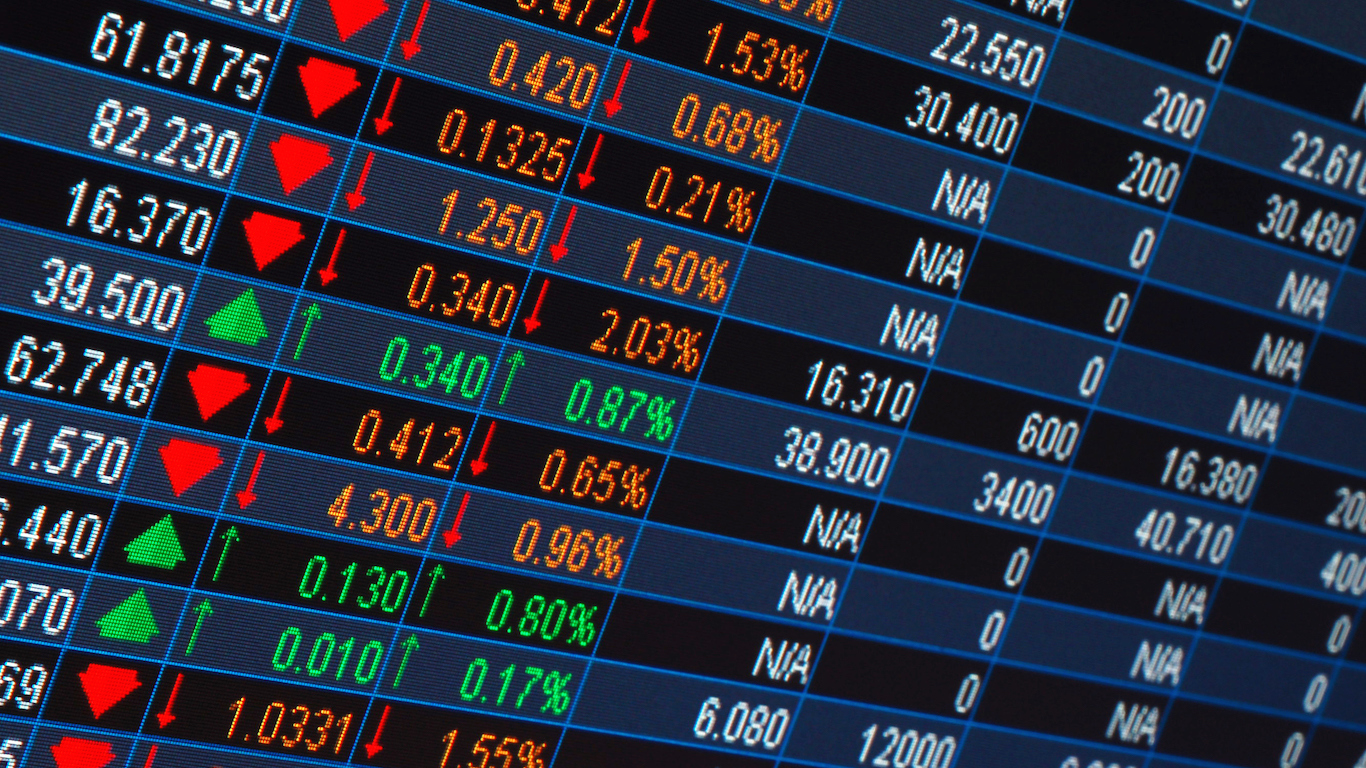Investing
As the Dow Hits All-Time High, Over Half of Dow Stocks Keep Disappointing Investors

Published:
Last Updated:

When investors hear that the stock market just hit a new all-time high, it’s probably fairly easy to assume that this means almost all the individual stocks are probably at all-time highs as well. In a world of push and pull inside the nuances of each major equity indexes, that just isn’t in the case. In some ways, it can be far off-base to think that all the major stocks are even doing well.
The Dow Jones industrial average is still considered to be “the market” when the public considers the stock market gains or losses on any given day. In reality, the Dow uses an arcane index calculation that is still based solely on share price rather than on a company’s market capitalization. That means that if a theoretical Dow stock had a $300 share price and a $50 billion market value and another had a $30 share price and a $500 billion market value that the first would have 10 times the index weighting in the Dow over the latter having an implied 10 times the weighting in the S&P 500 and other cap-weighted indexes.
With stocks at all-time highs, it’s important to consider the winners and losers. In this case, many stocks in the Dow are still holding the index back from even stronger gains. Despite the index now above 27,400, it is still shy of our original Dow 28,000 target at the start of 2019.
Boeing Co. (NYSE: BA) has been in hot water over its 737 Max having two deadly crashes, with a host of delays on when the plane can return to service and potential cover-ups and finger-pointing in the months since those deadly crashes. With shares seeing a gain of 0.8% at $348.00 on Monday, the 52-week high and all-time high from earlier in 2019 is $446.01.
Caterpillar Inc. (NYSE: CAT) may be up 1.2% at $146.25 for a 52-week high, but it remains held back by the slower global growth and the China exposure. The stock now trades above its consensus analyst target price of $140.17 from Refinitiv, and Caterpillar briefly traded above $173 before adjusting for dividends (closer to $163 after adjusting for dividends) at the start of 2018.
Chevron Corp. (NYSE: CVX) and Exxon Mobil Corp. (NYSE: XOM) are a two-for-one review as their woes are so similar. Many investors don’t want to own oil stocks now, and whether oil is $100 or $30 a barrel, and whether they are valued at five times or 25 times earnings, may not change that. Chevron had a 3% gain to $119.95 on Monday, down from a 52-week high of 127.34 and a 2014 high above $130. Exxon’s gain of 1.5% to $70.68 on Monday is still handily down from its 52-week high of $83.75, but its adjusted all-time high was over $101 back in late 2013.
Cisco Systems Inc. (NASDAQ: CSCO) is a low weighting in the Dow due to a sub-$50 share price, but a gain of more than 1% to $47.67 on Monday was still over $10 short of its 52-week high of $58.26. The technology player has been shifting to a recurring revenue model, but it effectively has been shut out of new business in China. It’s hard to imagine that this was a more than $70 stock at the peak of the tech and dot-com bubble seen in 2000.
Goldman Sachs Group Inc. (NYSE: GS) may be back above its woes tied to scandals in Indonesia and may have recovered quite a bit in 2019, but a 0.8% gain to $219.21 is still quite short of its 52-week high of $234.06. Adjusting for dividends, its high at the very start of 2018 was closer to $268.
Intel Corp. (NASDAQ: INTC) has recovered handily from earlier losses in the year, and the 1.1% gain to $57.15 on Monday is almost within two dollars of its 52-week high of $59.59. Still, Intel was closer to $75 at the zenith of the technology and dot-com bubble in 2000. Its current share price is also above the consensus target price of $56.03.
Thank you for reading! Have some feedback for us?
Contact the 24/7 Wall St. editorial team.